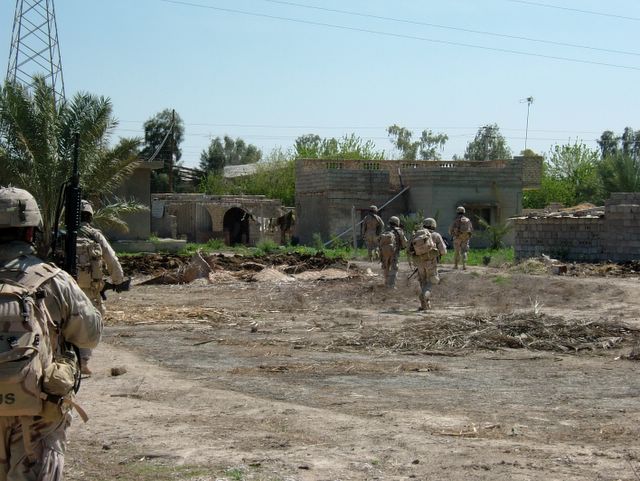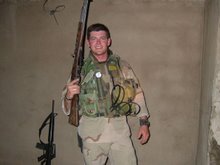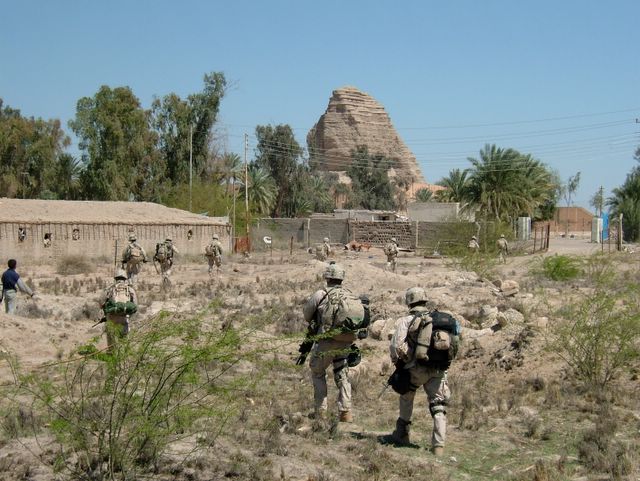U.N. Force in Lebanon Offers Harsh Realities and Lessons
The New York Times
July 19, 2006
By HASSAN M. FATTAH and WARREN HOGE
HOSH, Lebanon, July 18 — Buried in the rubble of one of the homes demolished in Israel’s relentless bombardment of southern Lebanon was a stark illustration of why the United Nations’ peacekeeping efforts have been seen as ineffective.
A Ghanaian member of the United Nations Interim Force in Lebanon, known as Unifil, was killed along with his family here on Sunday by an Israeli bomb. And more than 24 hours later, peacekeeping troops could not even leave their base to dig out his body, because the short trip to his house was too dangerous.
“They are barely able to take care of themselves,” said Timur Goksel, who spent 20 years as an official with Unifil, and now lectures at American University in Beirut. “How can you expect them to do their work? It’s a mini-force with small engineering capacity and a narrow area of operation right along the border. What can anyone expect them to do?”
The saga of the troops, who are charged with keeping the peace and observing the border, offers a sobering reminder of the grueling realities of peacekeeping to politicians hoping that a new United Nations contingent might be the solution in Lebanon.
And, peacekeeping experts say, it offers lessons on how to shape a more effective force.
On Monday, Secretary General Kofi Annan, backed by Prime Minister Tony Blair of Britain, called for a new stabilization detachment in southern Lebanon.
Mr. Annan said that the unit would have to be much larger than the existing 2,000-man Unifil, and that it would operate with a broader mandate, which would give it the ability to stabilize Lebanon so that the government could gain control of the south and “sort out the question of the disarmament of the militia.” It is not clear if Mr. Annan will propose that any new force be drawn from major powers.
Mr. Annan, who returns to New York from Europe on Wednesday, is expected to brief the Security Council on Thursday. Creating a blue-helmeted contingent will require a Council resolution, a requirement that can delay swift action.
In a telephone interview from Brussels, Mr. Annan said, “I will be appealing for their political will for action because around the world people do not understand why the Council has not been able to act when the Middle East is burning.”
The Council has met three times to discuss Lebanon without taking any action or making any statement. On Monday, John R. Bolton, the American ambassador, discouraged talk of either a multilateral force or a cease-fire, both proposals that Mr. Annan has made.
Mr. Annan said he questioned a call from Israel to set up its own security cordon in south Lebanon. “They may call it what they want, but to the others it will be an occupation, since it will be on somebody else’s territory,” he said. “You need a third party, hence my suggestion for a stabilization force.”
Mr. Goksel emphasized that any unit with the job of deterring actions would immediately be seen as an attempt to rein in Hezbollah.
“This will immediately be seen as an occupation force, and then the trouble will start,” Mr. Goksel said.
Jean-Marie Guéhenno, the under secretary general for peacekeeping, said the problems confronting Unifil were ones frequently experienced when peace broke down.
“One should never forget that peace is made by those who fought, it is not made for them by the international community,” he said in a telephone interview from Brussels, where he was accompanying Mr. Annan.
When Unifil was formed in 1978, it was meant as an interim force to confirm the withdrawal of Israeli forces from southern Lebanon, restore security in the area and help the government regain authority over the area. But to many here, Unifil gradually became a lifeline, too, as a series of flare-ups and wars forced the mission to undertake humanitarian missions as well.
Undermanned and often outgunned, Unifil did not have the political backing of major powers to enforce peace.
At times, the force served as a successful buffer in Lebanon, but ultimately the system broke down. Unifil troops failed to control first Palestinian guerrillas, then Israeli occupiers, and then the Hezbollah militia, which drove out the Israelis.
The Unifil force shrank significantly after Israel withdrew from southern Lebanon in 2000. It has 2,000 members today, including Indian, Ghanaian, French, Italian and Polish troops and aides, down from more than 6,000 troops and aides at its peak.
The unit was reduced deliberately, according to United Nations diplomats, in an effort to pressure the Lebanese government to take action to disarm Hezbollah and declare its authority over the south.
That number of troops has proven woefully low as the bombing campaign began last week. The force has had a hard time supplying its own bases and observation posts in the south.
They have about a week of diesel fuel left and are running short of food and water, and the bases have come under fire, said Richard Morczenski, a civil affairs officer with the force.
“If you operate in a war zone and you are also helping people, there are risks, calculated risks, but risks nonetheless,” Mr. Goksel said. “That’s why you have armies doing the job.”
Hassan M. Fattah reported from Hosh for this article, and Warren Hoge from the United Nations












